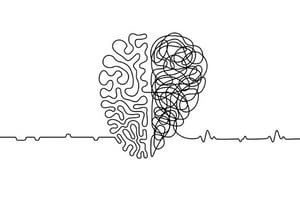Do you have attention-deficit/hyperactivity disorder (ADHD)?

ADHD is a disorder that normally stems from childhood into adulthood. According to Mayo Clinic, ADHD symptoms can begin in children at age three and usually begin before the age of 12. When understanding if you or your child has ADHD, be on the lookout for the following symptoms:
Trouble paying attention
Whether in school or at home, a child with ADHD may not be able to focus on one task or listen. It can be difficult for them to stay focused on tasks as simple as playing with toys. Your child may jump from one task to another quickly because they’re easily distracted. Even if you’re directly talking to them, they could have trouble focusing on what you’re saying.
Difficulty organizing
Whether it’s their schedule, bedroom or activities they’re involved in, they may have trouble organizing their time. For example, trying to complete their schoolwork based on deadlines can be difficult to do because children with ADHD try to avoid tasks where they need to focus on one thing at a time.
Forgetful
Simple tasks like remembering their homework or a chore can be easily forgettable by a child with ADHD. Because they aren’t focused on one thing at a time, it’s hard for them to remember all their tasks to do.
Doesn’t get along with others
Because they think a different way than others, a child with ADHD may not understand or want to do something their peers want to do. They often do not want to take turns which can lead to disagreements. They may take unnecessary risks without thinking about what the result or consequence will be.
Talk and fidget constantly
Because they have so many thoughts and ideas, children with ADHD express themselves through constant moving or talking because they have so much energy. Their body doesn’t want to sit still so their fingers may fidget or their feet tap constantly; they often want to be moving and have trouble doing activities quietly. Also, children with ADHD often blurt out answers to questions because they have difficulty waiting their turn.
If you or a loved one is experiencing these symptoms, talk to your primary care provider and enroll in therapy. There are medications to help ADHD, but there is no definitive cure. But, by taking medication and talking to a therapist, you or your child can learn how to adapt to their ADHD easier. Meanwhile, limiting screen time, having daily physical activity, getting a healthy night’s sleep and eating a balanced diet can help those with ADHD, according to the Centers for Disease Control and Prevention (CDC).